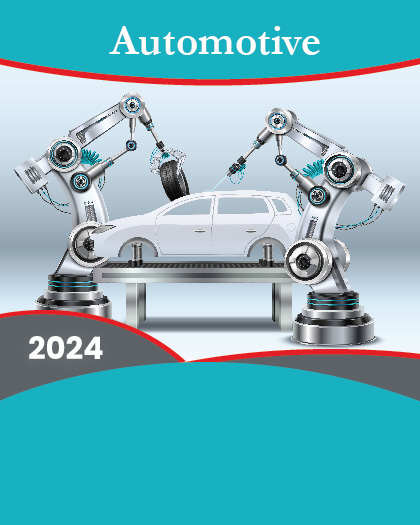
Smart robot is designed to carry out various operations without interference of the humans. A smart robot uses an artificial intelligence (AI) system that can learn from its environment and its experience. Smart robots can collaborate while working together as well as learning from the behavior of humans.
Flexibility & scalability in operation along with the high performance fuels the growth of the smart robot market. With the development of smart technologies, new types of humanoid robots have the ability to feel materials. These types of humanoid robots can feel with the help of sensors, software, and actuators. These smart technologies can identify different materials by touching them.
Growth in industrial automation, advancement of robotics for connected and digital world, and strong government funding for automation solutions are driving the market. In addition, development in automotive sector, strong government funding for factory automation solution is fueling the growth of the smart robot market. However, high manufacturing cost, insecure connections with robots, difficulty of reprogramming, regular maintenance and software updates of the system restrict the market. Moreover, rise in developments of smart homes and increase in concern of workplace safety are expected to provide lucrative opportunities in future.
The smart robot market is segmented into component, application, industry verticals and region. Based on component, it is bifurcated into hardware and software. Hardware is further segmented into sensor, actuator, power source, control system, and others. Further, sensor is divided into gyroscope, microphone, accelerometer, tilt sensor, force/torque sensor, position sensor, vision/image sensor, and others. The application segment is divided into welding & painting, assembling & disassembling, mobility, security, cleaning, nursing, inspection, and others. And based on industry verticals it is classified into manufacturing, automotive, electrical & electronics, food & beverages, chemical, rubber & plastics, residential, and others Based on region, the market is analyzed across North America, Europe, Asia-Pacific, and LAMEA.
KEY BENEFITS FOR STAKEHOLDERS
This study comprises of analytical depiction of the global smart robot market with current trends and future estimations to depict the imminent investment pockets.
The overall market potential is determined to understand the profitable trends to gain a stronger coverage in the market.
The report presents information related to key drivers, restraints, and opportunities with a detailed impact analyses.
The current market is quantitatively analyzed from 2018 to 2025 to highlight the financial competency of the market.
Porter's five forces analysis illustrates the potency of the buyers and suppliers.
KEY MARKET SEGMENTS
By Component
Hardware
Sensor
Gyroscope
Microphone
Accelerometer
Tilt Sensor
Force/Torque sensor
Position Sensor
Vision/Image Sensor
Others
Actuator
Power Source
Control System
Others (Body Material)
Software
By Application
Welding& painting
Assembling & disassembling
Mobility
Security
Cleaning
Others
By Industry Vertical
Automotive
Manufacturing
Electrical & Electronic
Food & Beverages
Chemical, Rubber & Plastic
Residential
Others
By Region
North America
U.S.
Canada
Mexico
Europe
UK
Germany
France
Russia
Rest of Europe
Asia-Pacific
China
India
Japan
South Korea
Rest of Asia-Pacific
LAMEA
Latin America
Middle East
Africa
























